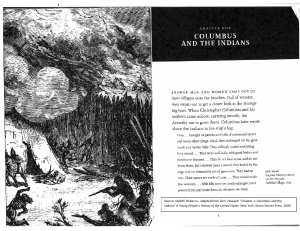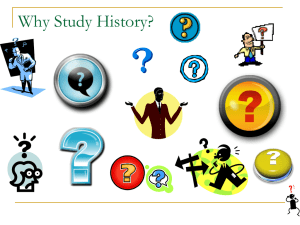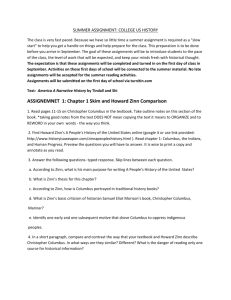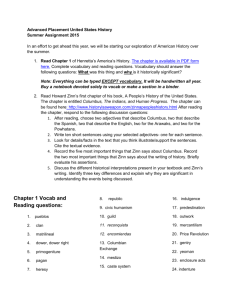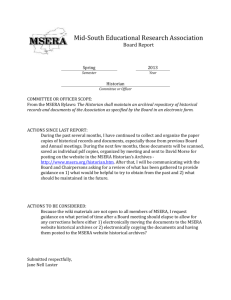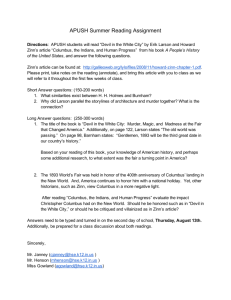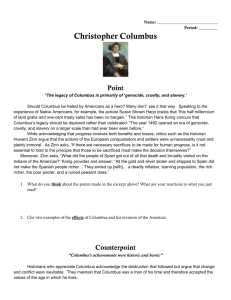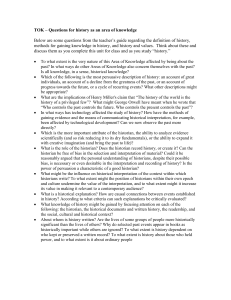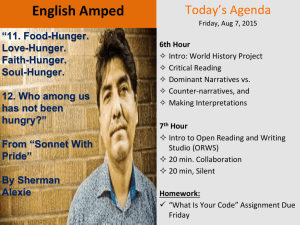NewSummerReading
advertisement
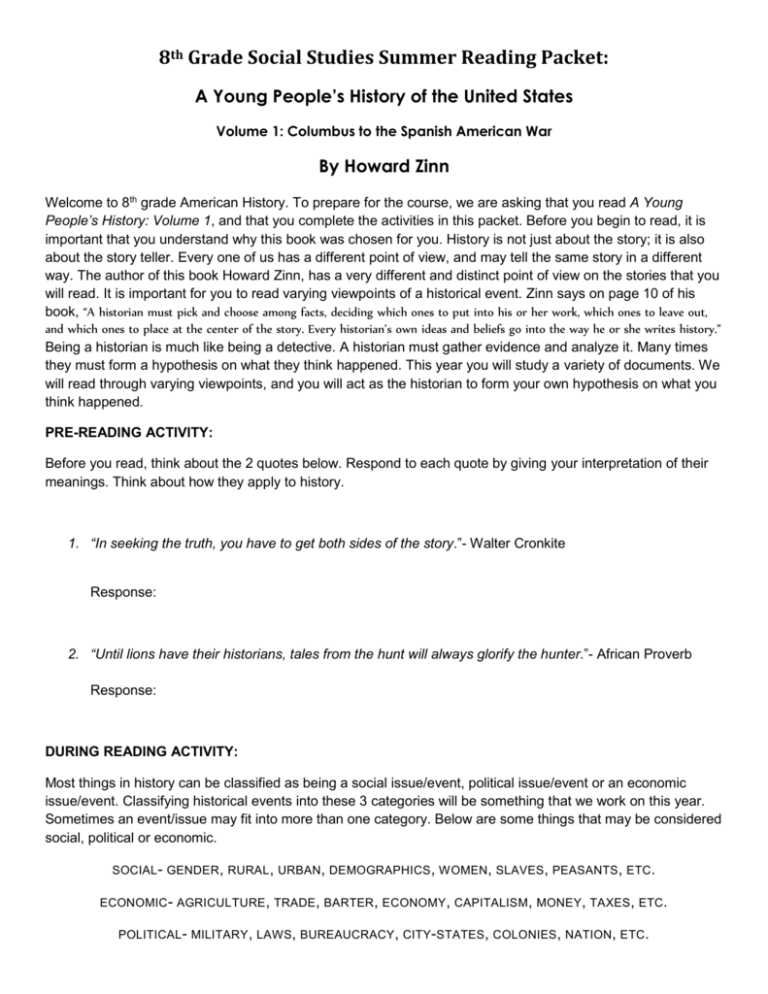
8th Grade Social Studies Summer Reading Packet: A Young People’s History of the United States Volume 1: Columbus to the Spanish American War By Howard Zinn Welcome to 8th grade American History. To prepare for the course, we are asking that you read A Young People’s History: Volume 1, and that you complete the activities in this packet. Before you begin to read, it is important that you understand why this book was chosen for you. History is not just about the story; it is also about the story teller. Every one of us has a different point of view, and may tell the same story in a different way. The author of this book Howard Zinn, has a very different and distinct point of view on the stories that you will read. It is important for you to read varying viewpoints of a historical event. Zinn says on page 10 of his book, “A historian must pick and choose among facts, deciding which ones to put into his or her work, which ones to leave out, and which ones to place at the center of the story. Every historian’s own ideas and beliefs go into the way he or she writes history.” Being a historian is much like being a detective. A historian must gather evidence and analyze it. Many times they must form a hypothesis on what they think happened. This year you will study a variety of documents. We will read through varying viewpoints, and you will act as the historian to form your own hypothesis on what you think happened. PRE-READING ACTIVITY: Before you read, think about the 2 quotes below. Respond to each quote by giving your interpretation of their meanings. Think about how they apply to history. 1. “In seeking the truth, you have to get both sides of the story.”- Walter Cronkite Response: 2. “Until lions have their historians, tales from the hunt will always glorify the hunter.”- African Proverb Response: DURING READING ACTIVITY: Most things in history can be classified as being a social issue/event, political issue/event or an economic issue/event. Classifying historical events into these 3 categories will be something that we work on this year. Sometimes an event/issue may fit into more than one category. Below are some things that may be considered social, political or economic. SOCIAL - GENDER , RURAL , URBAN, DEMOGRAPHICS , WOMEN, SLAVES , PEASANTS , ETC. ECONOMIC - AGRICULTURE , TRADE , BARTER , ECONOMY, CAPITALISM, MONEY, TAXES , ETC. POLITICAL - MILITARY, LAWS, BUREAUCRACY, CITY-STATES , COLONIES , NATION , ETC. As you read each chapter of the book, try to find 1 economic, 1 social, and 1 political thing from each chapter. Chapter 1 has been completed in the chart for you. Use that as a guide to complete the rest of the chart. CHAPTER SOCIAL Columbus and the Indians Columbus’s harsh treatment of the Native Americans. Black and White Who were the Colonists? Tyranny is Tyranny Revolutions The Women of Early America As Long as Grass Grows or Water Runs War with Mexico Slavery and Emancipation The Other Civil War Robber Barons and Rebels The American Empire POLITICAL Columbus’s reward of being made governor of new found lands. ECONOMIC The Spaniards seeking gold and riches. POST-READING ACTIVITY: NOW THAT YOU HAVE COMPLETED YOUR READING , ANSWER THE FOLLOWING QUESTIONS : 1. PRIOR TO READING YOU MAY HAVE HAD SOME KNOWLEDGE ABOUT A FEW OF THE STORIES IN THE BOOK . DID YOU MAKE ANY NEW OR DIFFERENT DISCOVERIES ABOUT A STORY YOU WERE FAMILIAR WITH? W HAT WAS THE NEW DISCOVERY? 2. IN YOUR OPINION , WHICH OF THESE EVENTS DO YOU FEEL PLAYED THE LARGEST ROLE IN SHAPING AMERICA TODAY? EXPLAIN YOUR ANSWER. 3. W HICH EVENTS /CHAPTERS WOULD YOU LIKE TO KNOW MORE ABOUT? W HY DO THESE EVENTS INTEREST YOU THE MOST? W HAT ABOUT THEM APPEALS TO YOU ?
